A Scene of Chaos and Confusion

The immediate aftermath of a car accident is often a scene of chaos and confusion.The loud crash of metal on metal echoes in your ears, the airbag deploys, and for a moment, the world seems to stand still. You’re left with a pounding heart and a fear that grips you from within; a paralyzing fear that can leave you never wanting to climb behind the wheel ever again.
The severity of the situation soon sets in. The physical injuries incurred during the crash are immediately apparent. You’re burdened with broken bones, deep cuts, and agonizing pain. But what about the injuries you can’t see? The psychological trauma that can accompany such an event is often overlooked, but its impact can be just as profound.
Imagine this…
You are not just suffering from the physical injuries, but you are also dealing with the emotional pain of losing a loved one in the crash. The heartbreak is overwhelming and serves as an added layer of grief that makes the recovery process even more challenging.
But while you’re trying to process this life-altering event, the outside world refuses to pause. The insurance company is quickly on your case, pressuring you to accept a settlement. It’s a low offer that barely scratches the surface of your medical expenses and doesn’t even begin to amount to fair compensation for your pain and suffering.
In addition to the physical injuries and the emotional trauma, you now have to deal with the damage to your vehicle. The repair costs are mounting, and the insurance company is dragging their feet. The frustration builds as you’re forced to navigate through the red tape, all while trying to recover from your injuries.
Meanwhile, life continues to throw its curveballs. You’re forced to take time off work to heal, resulting in lost wages. Bills continue to pile up, with the unexpected ones taking you by surprise. The responsibilities of everyday life don’t cease. You still have to provide for your family, get groceries, pay rent, fuel the car, and more.
The kids still need to get to school,
dinner still needs to be cooked, and amidst all this, you’re trying to recover, both physically and emotionally. It’s a time of extreme stress and your brain is on overload. The exhaustion sets in, not just from the physical pain but also from the relentless stress and anxiety.
The mental health toll of the entire ordeal is immense. The stress, the fear, the pain, and the heartbreaking loss can be too much to bear. The recuperation process is not just about healing your physical wounds, but also about dealing with the mental and emotional trauma. It’s about trying to get your life back on track while battling the mental and physical challenges..
In the midst of this chaos, there’s one decision that stands as one of the most important: choosing the right legal representation. Before you get pressured into accepting the insurance company’s offer, consider this: you have the right to consult with a trusted auto accident attorney. This might seem like an additional burden layered on top of your existing stress, but it can be an essential step in ensuring you receive the justice you deserve.
You might be wondering, “What should I ask my attorney to know they’re the right fit for me? How can I ensure they won’t take advantage of my situation? How do I know they’re willing to take my case all the way to trial? Will the attorney’s fee even make it worth it to hire one?” These are all valid concerns, and the answers are critical in determining the best course of action for your situation.
In this post, we’ll keep it simple. A key question to ask your potential attorney is this: “Do you have jury trial experience? Have you tried any personal injury or wrongful death cases recently? ” If the answer is no or they dodge the question, there’s a very good chance that the attorney or firm does not have a reputation of going to trial in the exceptional cases where the case should be tried to a jury…
Why You Need an Experienced Attorney
You need to know who is in your corner. If the insurance company is not willing to make a decent offer–a fair offer, you need to know that your attorney will fight tooth and nail for you. They should be prepared to take your case to trial to ensure you get the compensation you deserve. The insurance companies and defense lawyers keep track of which attorneys and firms actually try cases and are skilled trial advocates. This factor is one of the most significant questions they ask when determining to make a fair offer in your case.
When you’re dealing with the aftermath of an accident, the last thing you need is an attorney who’s not ready to go to bat for you. You want someone who’s experienced, someone who’s been in the trenches, someone who knows how to navigate the complex legal landscape. An attorney who has little or no recent trial experience may not have the experience or the mentality needed to take on the insurance companies.
An experienced attorney can be the difference between a low-ball settlement that barely covers your medical expenses and an offer that truly reflects the pain, suffering, and disruption to your life caused by the accident. They can help you understand the legal process, provide advice on the best course of action, and advocate on your behalf in negotiations, or if necessary, in court.
But remember, it’s not just about their experience or their willingness to take your case to trial. It’s also about their commitment to you. You need an attorney who will listen to your concerns, answer your questions, and keep you informed every step of the way. You want someone who understands the emotional turmoil you’re going through and who treats you with the compassion and respect you deserve.
So, before you accept the insurance company’s offer, take a step back. Don’t let them pressure you into making a decision you’re not comfortable with. Reach out to a trusted auto accident attorney, ask them the crucial question, and make sure they’re the right fit for you. It’s your life, your recovery, and you deserve to have someone in your corner who will fight for what’s fair.
Now that we’ve tackled the legal side of things,
it’s also important to highlight the essential steps for mental health recovery following an accident. The trauma from an accident doesn’t just leave physical scars; it can also wreak havoc on your mental and emotional well-being. It would be beneficial for you to see a mental health provider, who can give you strategies and tools to help address what you’re going through. This advice might include several strategies to help you regain control of your mental health, including the following:
- Many mental health professionals advise to Take Time Off Work: The first step in your recovery process should be to give yourself the space to heal. This means taking time off work to rest, relax, and recover. It’s easy to get caught up in the hustle and bustle of everyday life, but it’s crucial to step away from these stresses to focus on your recovery. Taking this time allows your body and mind to heal, enabling you to regain your rhythm and feel more like yourself again.
- Mental health professionals also often advise Not to Rely on Medicine Alone: While medication can play a role in managing pain and anxiety, it’s not a cure-all solution. Be wary of falling into the trap of relying solely on over-the-counter prescriptions or quick fixes. These may offer some temporary relief, but they don’t address the root cause of your emotional distress. It’s important to remember that healing is a journey that involves more than just numbing the pain. It requires a holistic approach that combines physical care with emotional and mental health support.
- Mental health professionals often advise to Seek Counseling: It’s okay to ask for help. In fact, seeking professional help can be one of the most beneficial steps in your recovery process. A counselor or therapist can provide a safe space for you to express your feelings, fears, and frustrations. They can help you navigate the emotional ups and downs that come with recovering from an accident. By discussing your thoughts and feelings, you can begin to process your experience and develop strategies to combat the emotional toll it’s taken.
**These are several strategies that our clients have used under the guidance of a mental health professional, and we have seen them significantly help our clients. This is not mental health advice, and we always suggest that you see a mental health professional for advice and tools to directly address the unique circumstances of your injuries and trauma.
In these trying times, remember that it’s okay to prioritize your mental health and well-being. Your recovery is not just about healing your physical wounds; it’s also about taking care of your mental and emotional health. Following these steps can help you regain control of your life after an accident, enabling you to heal in a holistic and meaningful way. At the end of the day, the most important thing is that you’re taking the necessary steps to recover, at your own pace, in a way that’s best for you. Check out our video gallery for more answers to your questions.
Subscribe to our YouTube channel for latest information, we would love your feedback.


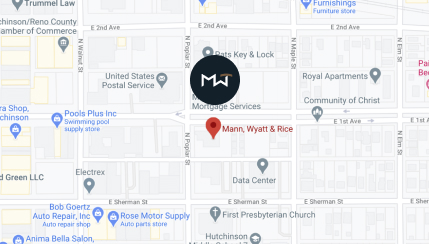
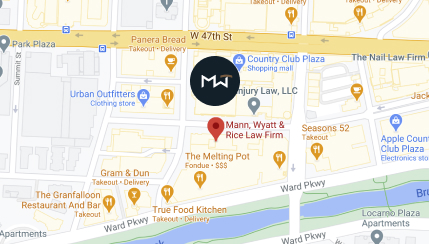
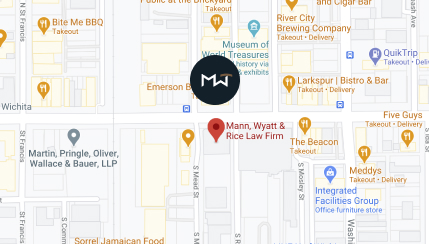
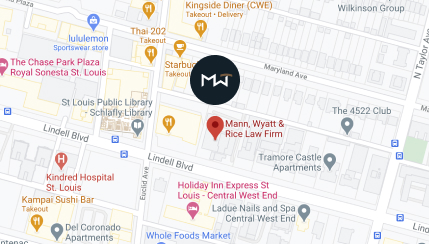
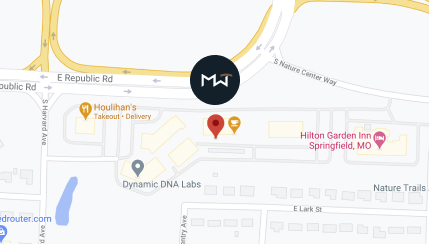
 Site by
Site by